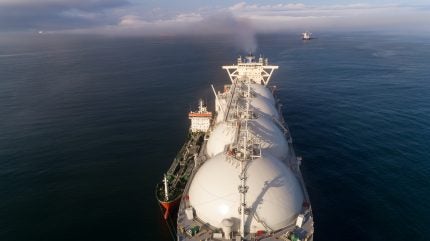
China’s liquefied natural gas (LNG) imports have dropped to their lowest level since the onset of Covid-19 in early 2020.
The decline is attributed to weak demand and higher prices in Europe, which have redirected cargoes away from China, reported Bloomberg.
According to Kpler data, China imported 4.5 million tonnes (mt) of LNG last month, trailing Japan as the largest importer for the second consecutive month.
Asia’s largest economy has seen a decrease in LNG imports, reminiscent of the early 2020 period when Covid-19 shut down many factories and curbed demand.
Wei Xiong, head of China gas research at Rystad Energy, noted that the relatively warm winter, ample storage supplies and low industrial demand have contributed to the decline.
Xiong highlighted that the full inventories are expected to continue impacting imports until the end of the heating season.
In recent months, some Chinese gas companies have taken advantage of more attractive prices abroad by reselling spot cargoes, particularly to Europe.
The Binhai LNG terminal in Jiangsu province re-exported a shipment last month to South Korea’s Boryeong facility, as per ship-tracking data compiled by Bloomberg.
The terminal also re-exported cargoes in January and December. Xiong anticipates that reselling activity will remain high in 2025 following China’s imposition of a 15% tariff on US LNG.
Conversely, China’s crude oil imports from Russia increased by 1% in 2024, setting a new record compared with 2023.
The rise in imports reflects China’s preference for discounted Russian supplies amid weakened refining margins.
Data from China’s General Administration of Customs shows that imports from Russia, including pipeline and seaborne deliveries, amounted to 108.5mt, equivalent to 2.17 million barrels per day.
The shift towards Russian oil is attributed to its lower prices and a Chinese Government mandate to bolster stockpiles.



